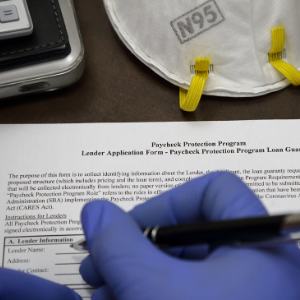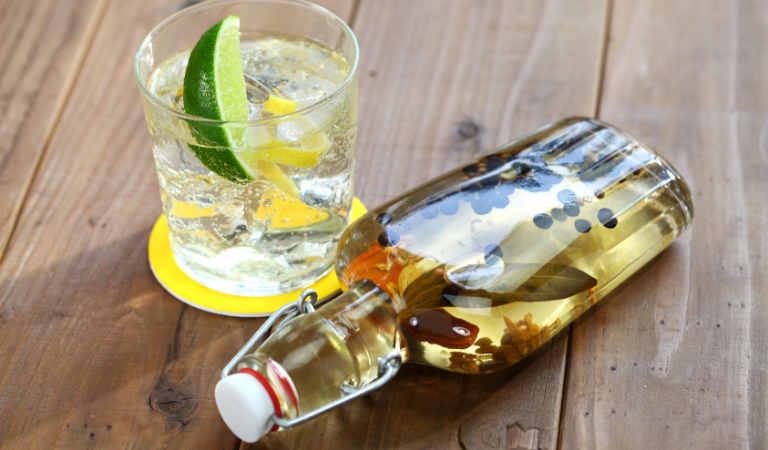Stats Of The Week
The State Of The Industry
According to a survey by the nonprofit New York City Hospitality Alliance, four out of five NYC restaurants did not pay their June rent in full. Of that, 90% said they paid half or less last month. The survey included 509 restauranteurs in the city and also found that landlords have been unwilling to give restaurants a break. 60% of restaurant owners said their landlords refused to give them deferments during the pandemic, while only 10% were able to renegotiate their leases. Even though challenges and debts are piling up, most restaurant owners said they aren’t looking to permanently close.
“Restaurant owners are hanging on by a thread and they’re exhausting their personal savings in the hope of one day getting their business up and running again,” Andrew Rigie, executive director of the Hospitality Alliance, said.
The Top Restaurants Receiving PPP Loans
On Monday, the Small Business Administration released data showing the recipients of the Paycheck Protection Program. The data shows that more than $42 billion was distributed to foodservice and accommodation industries which accounted for just 8% of the total $521.5 billion approved under the program. Their data lists borrowers of all loans receiving $150,000 or more which includes more than 44,000 loans that went to full-service and limited-service restaurants.
Most of the foodservice loans, 70.5%, were in the range of $150,000 to $350,000. Another 22.7% were in the $350,000 to $1 million range, while 4.3% received $1 million to $2 million. A total of 2.2% of companies got loans between $2 million and $5 million and 0.8% of businesses got loans between $5 million and $10 million. Many of the recipients of the largest loans were big chain restaurant groups and multiunit franchisees who have used the funding to keep their staff employed and reopen dining rooms.
What’s Trending
Uber Purchases Postmates, Creates A More Competitive Market
Uber has solidified itself as a strong competitor in the fight to be the top third-party delivery service by acquiring Postmates for $2.65 billion. With dine-in restrictions limiting the way customers purchase food, the food delivery market has become increasingly vital during the coronavirus pandemic. Uber plans to acquire Postmates in an all-stock transaction which will make Uber Eats the country’s second-largest third-party food delivery service, with DoorDash as the first followed by Grubhub as the third. According to data from consumer analytics firm Second Measure, Postmates and Uber Eats together earned 30% of food delivery sales in May, DoorDash earned 45%, and Grubhub earned 23%.
"Uber and Postmates have long shared a belief that platforms like ours can power much more than just food delivery, they can be a hugely important part of local commerce and communities, all the more important during crises like COVID-19," Uber CEO Dara Khosrowshahi said in a statement.
States Reverting Restrictions & Reclosing Establishments

As the country continues to see record highs in COVID-19 cases, states that are getting hit the hardest are returning to countywide closures to prevent the spread of the virus. Florida’s Miami-Dade county closed restaurant dining rooms and is now only allowing restaurants to seat guests for outdoor dining. California has closed down all dining options for restaurants in 19 counties and only permits for take out and delivery services. Texas has reduced its in-person dining capacity from 75% to 50% and has also ordered bars to close. Just as the reopening of restaurants across the nation was expected to help the already struggling restaurant industry, some operators must now get ready for another round of potential closures.
How Restaurants Should Prepare For A Second Wave
As COVID-19 cases continue to spike around the country, the restaurant industry must begin to take steps for the possibility of enduring another wave of lockdowns. Disaster planning expert Partick Hardy spoke to Nation’s Restaurant News about how operators should have an emergency plan in place for the potential next round of coronavirus closures. Hardy said restaurants need to create a “lessons learned” plan from the first wave by conducting a debrief with staff on what they did well and what they need to work on, then they must identify solutions and implement them in their next set of plans. Restaurants must also consider what they will do if a second lockdown occurs: will you close, not close, or repurpose your business? Lastly, operators must prepare for other disasters that may happen during the pandemic such as tornadoes in the Midwest or hurricanes in the South.
The Hotel Industry Pivots To Innovative Actions
As many industries have been incredibly affected by the pandemic, the hotel industry has taken it especially hard. Unlike restaurants that were able to gain a bit of income from take out and delivery, hotels had to completely close down business. The American Hotel & Lodging Association believes that the devastation caused to the hotel industry is already 9 times worse than the 9/11 tragedy, with more than 8 in 10 hotels having to lay off or furlough workers during the start of the pandemic. From the week of June 20, hotels had started to slowly reopen and saw some improvements in occupancy from 22% in early April to almost 44% in recent weeks.
In the time that hotels were forced to fully close, they enrolled their hotel and restaurant staff in extensive sanitation and safety training. In addition to following local guidelines, hotels have taken it a step further to create stricter standards to help appease guests. Hyatt has a hygiene captain at every property that teaches returning employees how to properly wear PPE and ways to allow sanitizing chemicals to work effectively. Hotels have also reworked their food and beverage options to make them more accessible for take out. For bar services, they’ve individually packaged complimentary snacks and are offering canned or bottled cocktails and beers to minimize interactions with bartenders.
To-Go Cocktails Aren’t Going Anywhere
At the beginning of the coronavirus crisis, offering cocktails to go seemed like a temporary solution to
help raise the amount of income restaurants and bars were receiving. Now that the industry has seen how
popular these services are amongst customers, many are hoping that it will stick around for good. This
week Iowa and Michigan have taken measures to help make cocktails to go a permanent option. Iowa
Governor Kim Reynolds signed a bill on Monday that permanently allows establishments to offer cocktails
to go. Michigan Governor Gretchen Whitmer signed legislation that extends cocktail to go sales through
December 31, 2025. More than 30 states are currently allowing restaurants and bars to sell cocktails to
go and states like Florida, Ohio, Oklahoma, and Texas are considering making their temporary policies
permanent.
Bright Spots In A COVID-19 World
Restaurant Adds A Message Of Hope To Every Order
Larry Michelson, one of the owners of East Shore Cafe in Alabama, has been feeding first responders during the pandemic even though revenue from his restaurant has gone down during shutdowns. Michelson said to WKRG that they are big supporters of first responders and realized that if they can’t come to the restaurant then they will deliver meals to them. Their restaurant staff has delivered more than a thousand meals and has gotten support from locals who are now sponsoring meals for $10 each. Each take out container has a message from the sponsor with messages like, “Thank you for your service” or “God Bless”. The local police department has expressed much gratitude for the meals and appreciates the added kindness of messages from sponsors.
Local Pizzeria Creates Pandemic Solutions
As lockdown measures went into place in mid-March, a Denver restaurant called Crush Pizza + Tap created trendsetting steps to stay afloat amid the pandemic. Restaurant owner, Jason McGovern, started offering Crush Care Packs which offered menu specials of their signature pizza and wings with the bartender’s choice of canned beers. The popularity of the packs allowed the restaurant to stay proactive about their supply of ingredients which was a common issue for restaurants that weren’t guaranteed the same volume of orders. The pizzeria was also quick to give back to frontline workers. For every $25 gift card that was purchased, the restaurant donated a pizza to those working on the frontline. Crush continues to be at the top of innovation with creating their own reservation and food delivery system to avoid fees from popular third-party food delivery services. These past few months have proved that no matter what challenges arise, restaurant owners are there setting an example for how to tackle each hurdle.
Quote Of Hope
"People who are in this [restaurant] industry love it. We don't do it for money. We do it because we love serving people. We love making people happy with food, and we love telling the stories of the products and the producers." - Peter Sclafani, regarded as one of the most innovative chefs in Louisiana






